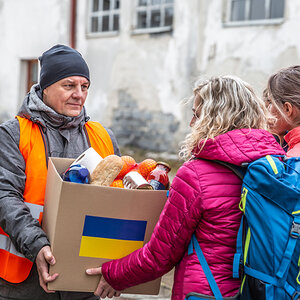Tsunami Aid Effort Slowed Other Disaster Relief Campaigns
The worldwide appeal for emergency aid and assistance for victims of last year's Indian Ocean tsunami has distracted donors from less-dramatic humanitarian crises elsewhere, the Associated Press reports.
According to Jan Egeland, head of the United Nations Office for the Coordination of Humanitarian Affairs (OCHA), 85 percent of the UN's appeal for emergency assistance for countries devastated by December's tsunami has been met, even as contributions to other humanitarian emergencies have slowed. With major natural disasters such as earthquakes and tsunamis, "we don't need to do anything to get [people's] attention," said Egeland. "It's the slow-onset disasters that are the problem, the droughts especially." Egeland specifically mentioned humanitarian crises in Niger, Djibouti, and the Central African Republic.
Niger, one of the world's poorest countries, has been particularly hard hit by drought and a severe locust invasion "of biblical proportions," and the agency's appeal for $16.2 million launched last week has received no contributions, Egeland said. OCHA hopes to provide food aid for some 3.6 million people in the west African country, where 800,000 children under five are suffering from hunger, including 150,000 who are severely malnourished. In addition, OCHA has received only 4 percent of the $7.5 million it has sought to help victims of drought in Djibouti, and 6 percent of its $23.6 million appeal for the Central African Republic, which is recovering from civil war.
But Egeland stressed that the worldwide response to the tsunami was remarkable. "There can be no shred of doubt that the world has performed at its best vis-à-vis the Indian Ocean tsunami," he said.





